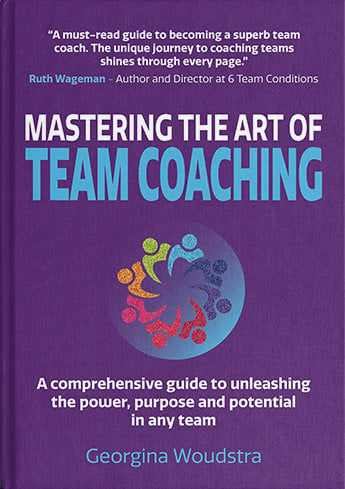A person’s presence is almost impossible to describe, yet always obvious. It is also probably one of the most important of the our Team Coaching Competencies
Presence can be a mysterious concept, and a definitive definition is hard to come by. This is because presence is visceral and intuitive.
It is about our way of being in the world, imbued with all our unique history, the culture we are part of, our education, our lived experiences, our hopes and dreams and our fears, judgements and biases. Presence is NOW – this very moment – coloured by who we have been and who we are becoming.
However illusive to describe, we recognise it when we see and feel it. Ask two people to shout from the rooftop Martin Luther King’s famous words: “Free at last, free at last, thank God Almighty we are free at last,” and you’ll see and experience presence in action. No two people will deliver it in quite the same way. So, presence is the qualitative difference in your felt sense of a person, and it is always unique, hence: ‘signature presence’.
Presence may well be the most important of all team coaching competencies as it is distinctive and extremely powerful when used intentionally. Take your whole life history and throw this into the mix with all your coach training and practical experience and the result is YOU as team coach – the integrated totality of all you have become.
The real art of team coaching is less about theory, models, tools and frameworks and much, much more about how we leverage our very self, in the moment, for transformative impact. We call this ‘dancing in the moment’.
Presence also includes our ability to be present, as when we can be fully in the moment, we are creating a fluid and spontaneous relationship with the team. An ideal team coaching relationship is one in which the coach is empathically responsive to the team’s situation and its dynamics as it unfolds. The team impacts the coach and the coach responds to this openly and authentically. The coach impacts the team, and the team responds to this, too. So it is a mutual and reciprocal cycle of stimulus and response, in the here-and-now.
Finally, presence demands confidence. Like a martial arts black belt who can centre and ground themselves before making a clear and intentional move, a masterful team coach can be present to self, to the team and to the context even in strong emotions or heated conflict. The coach can self-manage and not be overpowered or enmeshed by the team’s emotions and dynamics, maintaining their presence under pressure. This doesn’t mean being poker-faced either, indeed quite the opposite – it means opening ourselves up to a wide variety of responses to moments as they arise.
How can you develop your signature presence as a team coach? I believe this is a question of developing your range. When our identity becomes fixed or rigid we limit the range of responses available to us. For example, if you see yourself as a calm person, then you may remain calm in all situations whereas a well-developed range includes the option of being excited or passionate. If you see myself as an active or dynamic person, can I also slow right down?
A great development activity is to ask peers for feedback on your presence at work; how they experience you ‘being’. This will give you an idea of the well-developed aspects of your presence. Then you can identify the polarity or less well-developed aspects and practice, allowing more space for these aspects in your being.

To learn more about our team coaching competency framework you might like to read our white paper, Excellence in Team Coaching: Understanding the Core Competencies



